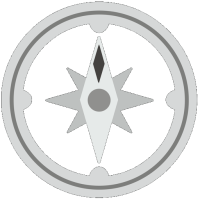The Scientific Method
Modern science started in the 1600s.
30 Phil, Chapter 20, Francis Bacon, Touchstone 51: The Scientific Method.
Science is the ongoing study of nature through observation. It’s that simple. If you see something new in nature, that’s science. Many definitions of science tend to intertwine the “how,” but the “how” is perpetually evolving, just like science itself remains a continual journey, never settling into dogma. Currently, we call the advanced systematic “how” of science the scientific method. It is an iterative process that uses controlled observation, induction and deduction, controlled testing with falsifiability, modeling, and peer review to understand objective reality.
One of the arcs in 30 Philosophers is science. The bulk of it lives in three chapters: 1, 20, and 21. I tell the story of how thinking about nature must include observing it — and that every observation, especially the repeatable ones, is science. In the book, I explain science as simply observation. I tell that story three ways: first, through history; then, directly; and finally, by getting a little philosophical about what science means.
In the early chapters, I show how ancient thinkers like Aristotle wrestled with nature. They mixed reason with observation, and it was a start — but it wasn’t yet science as we know it. By the time we get to Francis Bacon in chapter 20, the story changes. Bacon laid out a method: systematic observation, clearing away biases, and building knowledge from evidence. Then in chapter 21, Galileo puts that method into practice, combining experiment with mathematics. That’s the Scientific Revolution in motion.
But here’s where I tweak the method just a little. I suggest that science should make its first step explicit: identify and guard against bias. We all carry cognitive traps, and clearing them isn’t optional — it’s part of the method. I also emphasize that science is looping, not linear. It’s not just observe, hypothesize, test, conclude. It’s observe, test, revise: over and over. And finally, I frame every conclusion as provisional. Science doesn’t hand us eternal truths. It hands us our best current models, always open to improvement.
And here’s where the categories matter. Rational ideas, empirical ideas, and yes, even irrational ones — they’re all part of how humans think. But science? Science is where empirical ideas rule, anchored in observation. Rational models give structure, biases remind us to stay humble, and science itself is our ongoing attempt to sift through it all. I even suggest we formalize the stages of knowledge: start with speculation — raw ideas, untested. Then move to hypothesis — ideas framed for testing. And finally, on to theories, which can be provisional, working, or well-established. Naming these stages clearly helps us stay honest about where we really are in the process of knowing.
So in 30 Philosophers, science isn’t just a chapter in history. It’s an ongoing conversation between observation, categories of thought, and our effort to overcome bias. By clarifying the stages of knowledge, and tweaking the method just a bit, I think we make science stronger for the challenges we face today.




